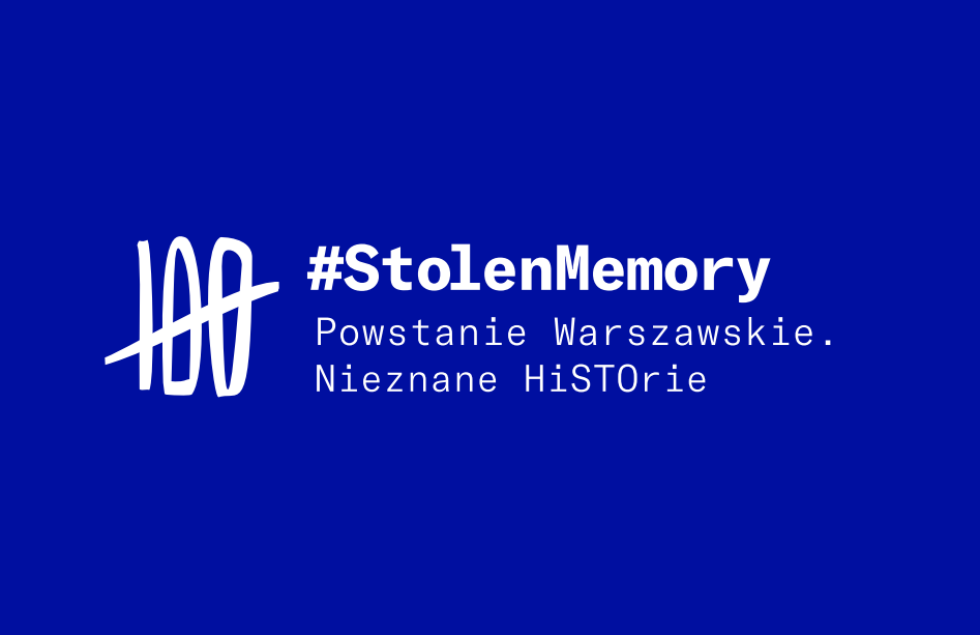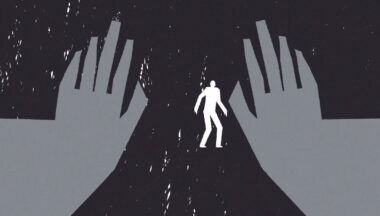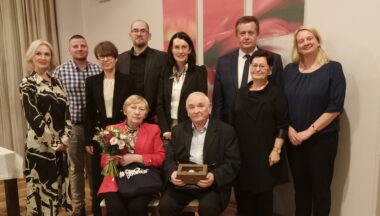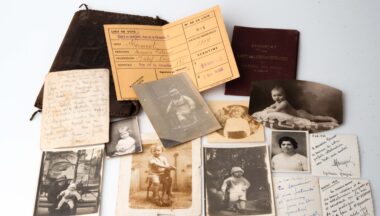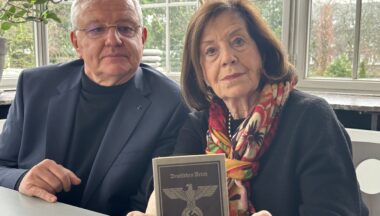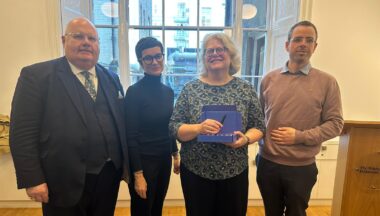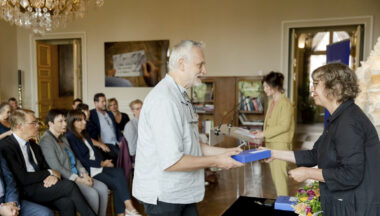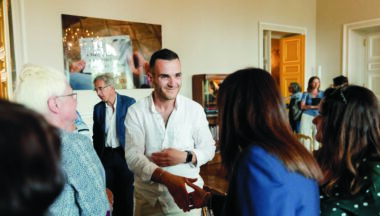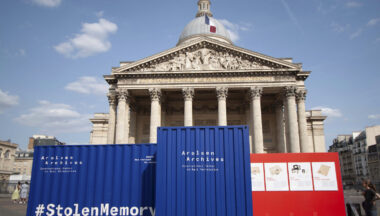A watch as the last reminder of a missing father
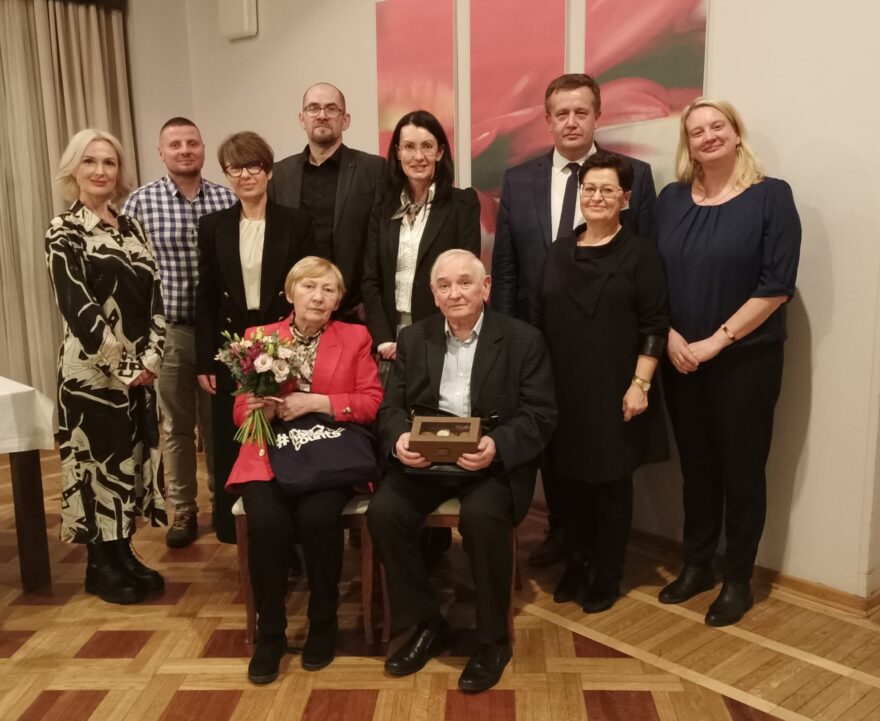
Zbigniew Miłecki has had no news of his father for 80 years. And then one day the phone rings. It is not a sign of life, not a message that will bring his father back, but one that rekindles distant memories – his father’s watch still exists! Stolen from him in the Sachsenhausen concentration camp, it is now stored in the Arolsen Archives.
A number of #StolenMemory volunteers were able to witness the touching moment when the watch was handed over to Zbigniew and his wife Anna on February 16 in Warsaw. During the ceremony, both emphasized that family history, photos, and documents are very important to them and occupy an important place in their lives and in their own story.
Born in Warsaw, deported to Germany
Zbigniew’s parents Bronisław and Zofia Miłecki lived in Warsaw during the German occupation of Poland. Zbigniew himself was born during the Second World War. During the Warsaw Uprising in 1944, when he was just eight months old, the German occupying forces deported his entire family. Initially, the Nazis took them to the transit camp in Pruszkow. Mother and son were then sent to the Meinkingsburg labor camp, north of Hanover. They never saw Zbigniew’s father again.
Zbigniew now knows that Bronisław was sent to Sachsenhausen concentration camp next, which is where the guards took his watch away. Later, the Nazis deported him to the Neuengamme concentration camp. This information is contained in documents that are kept in the Arolsen Archives. There are no records of what happened to him after that.
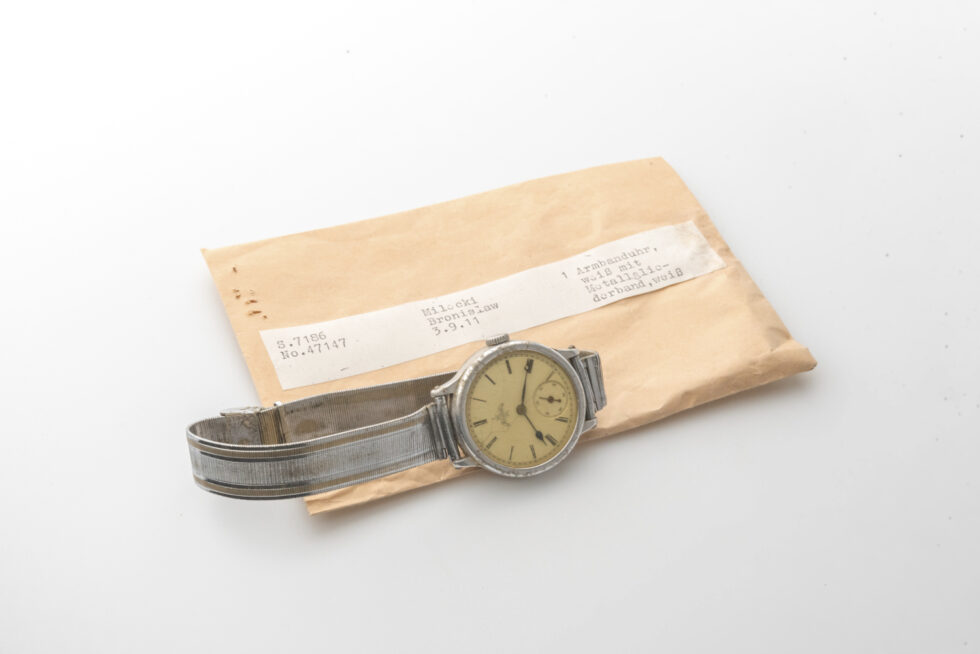
Despite being pregnant, Zbigniew’s mother Zofia had to do forced labor in the forest in Nienburg an der Weser. Zbigniew still remembers how his mother used to feed him a mixture of water and flour. She heated the food in a spoon held over a candle so she could give him a warm meal.
His sister is born in Krakow
Mother and son probably remained in the labor camp until December 1944. Then they were put on a train to Berlin Zoo; Zofia was heavily pregnant by then. They traveled on to Krakow next, and it is very likely that Zofia gave birth to Zbigniew’s sister there in late January or early February 1945.
Shortly after the war, Zofia returned to Warsaw with her two small children. She died of tuberculosis, partly because her body never recovered from the physical strain of forced labor. Her children were ten and eleven years old at the time and had to be brought up by their grandparents. The fate of their father Bronisław remained unknown to his family for many years. Until #StolenMemory volunteer Manuela Golc got in touch with Zbigniew.
A memento of their missing father
Manuela has become an expert in tracing the relatives of victims of Nazi persecution whose personal effects are stored at the Arolsen Archives. She has found 50 families already. She began to search for the descendants of Bronisław Miłecki last year, and she found out that his son Zbigniew is still alive. A garden competition in Warsaw helped her to track him down. The winner was Anna Miłecka, Zbigniew’s wife. Manuela Golc got hold of his phone number and called Zbigniew. At the ceremony held in February to mark the return of the watch, he explained that on first hearing the news, he could hardly believe that something of his father’s had survived, something that had belonged to this man he only knew from the stories his mother and grandparents had told him.
His father’s watch is one more piece to add to the puzzle of his fragmented family history. He also has a vanity case that belonged to his mother Zofia during the war. And there is a photo of his parents’ wedding, some photos of Zbigniew and his sister as children, and a photo of their mother Zofia, which was taken for her file when she was a forced laborer.
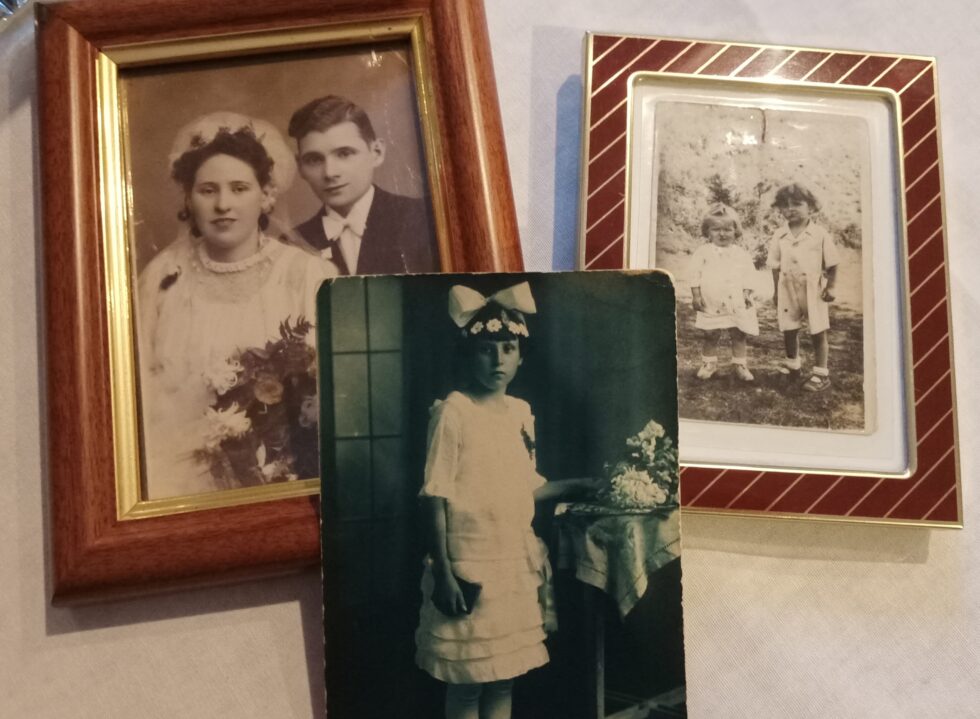
Warsaw Uprising. 100 Untold Stories
The Arolsen Archives still have a large number of personal items that belonged to people who were deported during the Warsaw Uprising. And because this year is the 80th anniversary of the Uprising, we have decided to launch the “Warsaw Uprising. 100 Untold Stories” campaign this year. We want to join forces with institutions, the media, schools, and private individuals to locate the families of at least 100 people, return the items that belong to them, and – in doing so – help to reconstruct family histories and personal fates.
We would like to thank everyone who is taking part in the search and helping to remember the victims.
